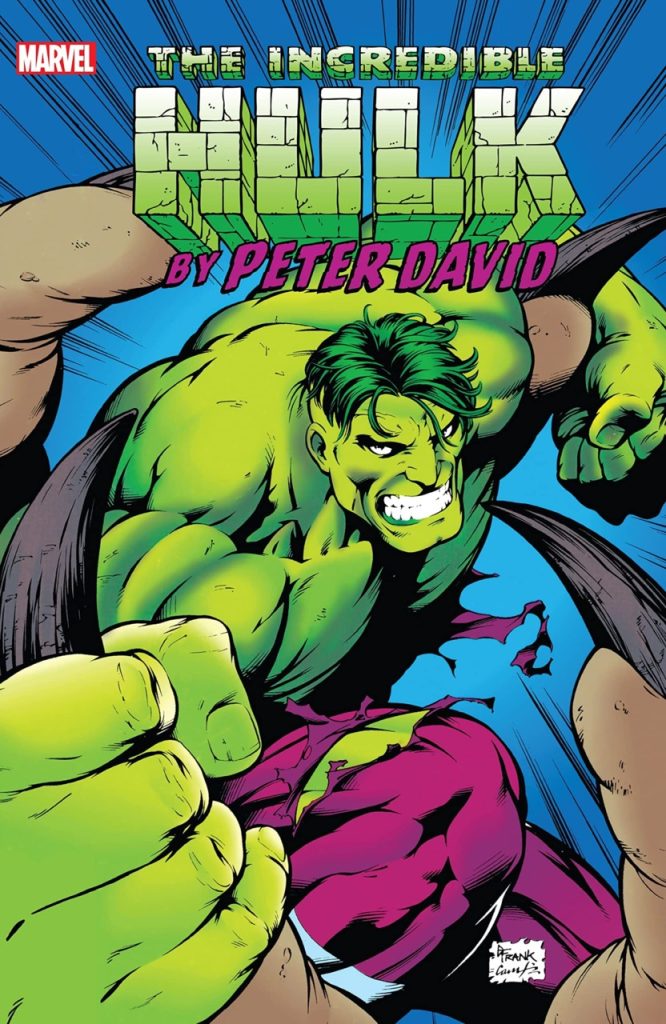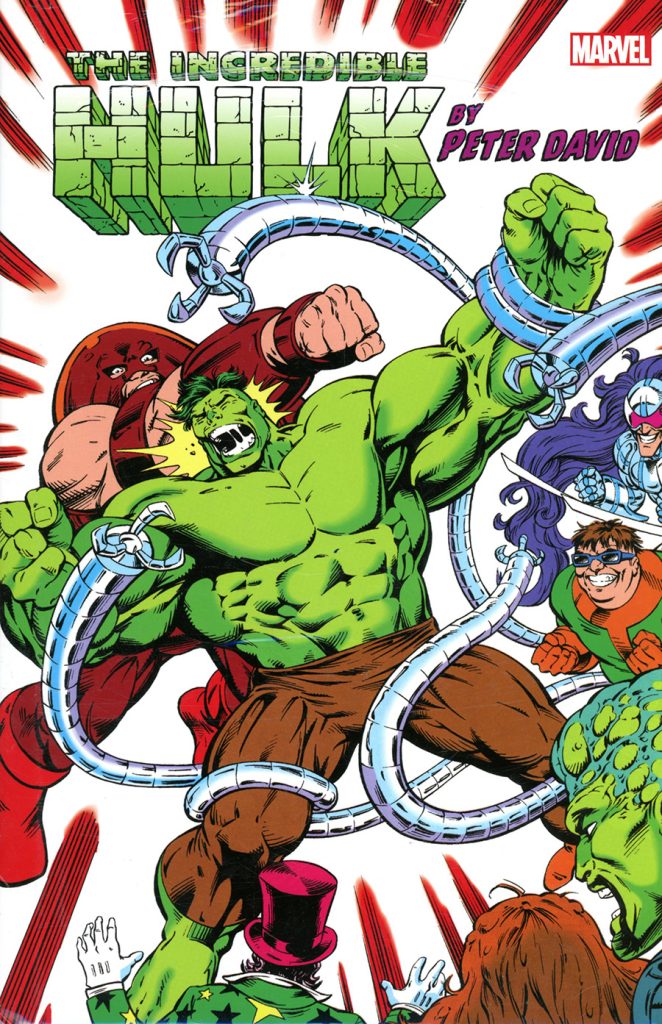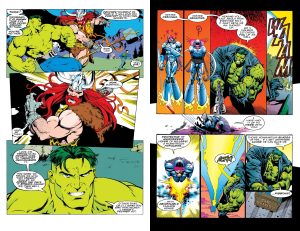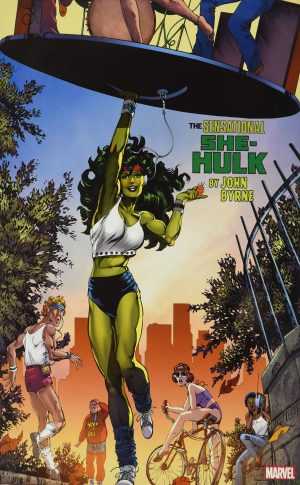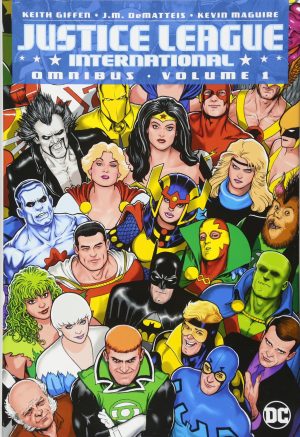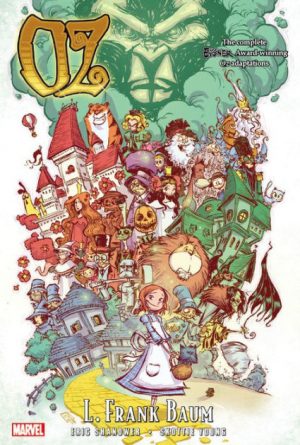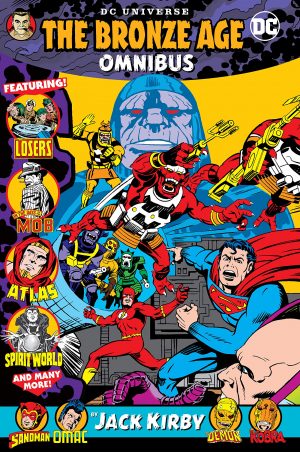Review by Karl Verhoven
As an indication of how much material there is here, Marvel’s paperback Epic Collections are bulky enough as it stands, yet in encompassing Peter David’s Hulk from 1993 to 1995 this hardcover combines Future Imperfect with Fall of the Pantheon. There’s still room for some of the earlier Ghost of the Past. It comes with a choice of dust jacket covers.
The absolute standout tale is David and George Pérez looking at a possible future for what was on publication still a relatively fresh combination of the Hulk’s strength with Bruce Banner’s intelligence. “He takes what he wants. Does what he wants”, explains an extremely old Rick Jones, “lives for his own amusement and gratification. If he favors you… great. If not, forget it”. How can the Hulk beat the tyrant he’s become? This is also available separately as The End, or Future Imperfect, and delivers shock and awe from start to finish with stunning art.
Back in the regular continuity, Hulk needed a new artist after Vol. 2, and the relatively unknown Gary Frank stepped in. He didn’t remain relatively unknown for long, clear storytelling a trademark and with a fondness for visual jokes in the backgrounds. It’s the polar opposite of subsequent main artist Liam Sharp, who’s almost unrecognisable as the polished artist he’d become. In the 1990s he was talented enough to modify his art to resemble what people then liked, but it’s messy and rushed, the time spent on a few intensively detailed pages per story. Each main artist draws a chapter addressing a social problem. Frank’s depiction of a supporting character dying of AIDS is sympathetic and appropriate, while Sharp’s exaggerations diminish the also well written exploration of teenage pregnancy. Other notable artists include Stuart Immonen on a short fairy tale, and John Estes.
As might be expected over three years of continuity, the Hulk comes a long way. The volume begins with both a wrap-up to the Leader story ending Vol. 2, and a set-up for the next, which you’ll find in Vol. 4, and ends with a strange game of baseball. David’s approach to the feature is to pull the rug away at regular intervals, so in between, the Hulk’s association with the Pantheon is undermined and collapses, Rick and Marlo are married, and a new page is turned as Bruce and Betty move incognito to Florida.
Back in the day David was among the best superhero writers, but times move on and this is an inconsistent collection. The dialogue is always sharp, and David’s never short of a plot twist. When everything falls tidily into place, such as ‘The Troyjan War’ sequence beginning with Pantheon member Atalanta’s abduction by an alien price, this still makes for very satisfying reading. So does the marriage sequence, allowing for now puzzling in-jokes from 1994. However, David does like a guest star, and those are now rarely as compelling. Nor, are the later selection, in which David echoes the 1970s Hulk TV show, not helped by the decent scripts among them being dragged down by the art.
It’s still possible to compile a five star selection of David’s Hulk, and it would include some material from this collection, but overall this stutters. The next volume wraps up David’s long first run on the Hulk.
